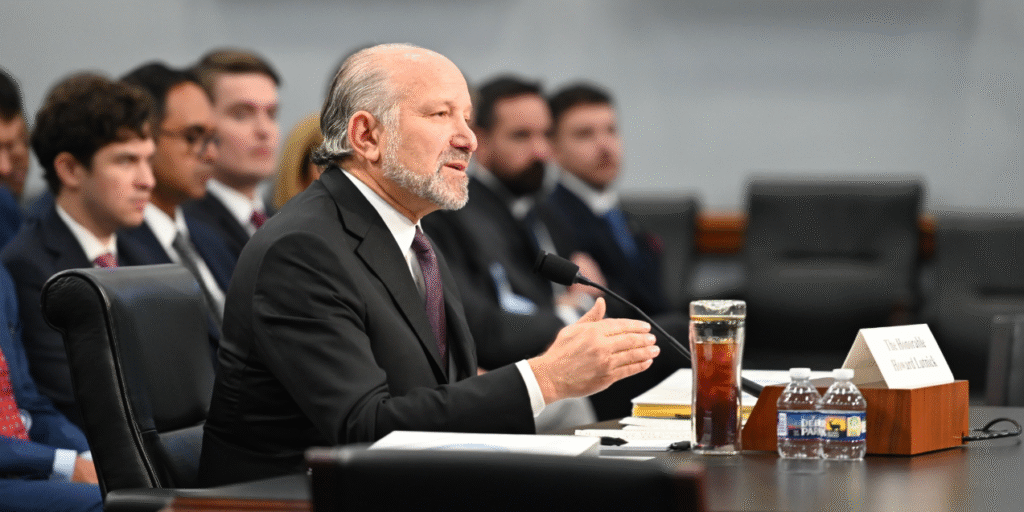Senators Advocate for Alabama’s Interests
In a recent hearing on Capitol Hill, US Senator Katie Britt and US Senator Dale Strong represented Alabama’s interests while speaking with US Secretary of Commerce Howard Lutnick.
The discussion covered various topics significant to Alabama, including biotechnology, automotive manufacturing, and farming. Britt highlighted the achievements of Southern Research and the Birmingham Biotech Hub, noting their national leadership in fields such as ecology and precision medicine. “They’ve made some groundbreaking advances,” she remarked.
Britt expressed gratitude to Lutnick for his prompt attention to these matters, emphasizing the importance of proceeding with care and justice.
Turning to the automotive industry, she recognized its critical role in Alabama’s economy. “Motorcycle manufacturing transformed our economy and propelled us into the 21st century,” she stated. “For over 25 years, Alabama has become a key player in the automotive sector, even ranking as the nation’s top auto exporter.” She also questioned Lutnick about efforts to replicate Alabama’s success in other regions.
Lutnick responded by mentioning the administration’s goal to revitalize the auto manufacturing industry and expressed confidence that Alabama would benefit from a significant $250 billion investment in this sector.
In a follow-up hearing, Senator Strong also addressed the importance of Alabama’s automotive manufacturers, specifically commending President Trump for prioritizing American trade policies. He acknowledged the ongoing commitment to the automotive sector and highlighted that both Mazda Toyota and Toyota Motor Manufacturing are key employers in his district.
Additionally, Strong discussed the difficulties farmers are currently facing. He noted that American farmers are struggling with low product prices and questioned why imports are favored over local beef. To this, Lutnick suggested that expanding trade markets for beef, chicken, and pork could help improve the situation.







